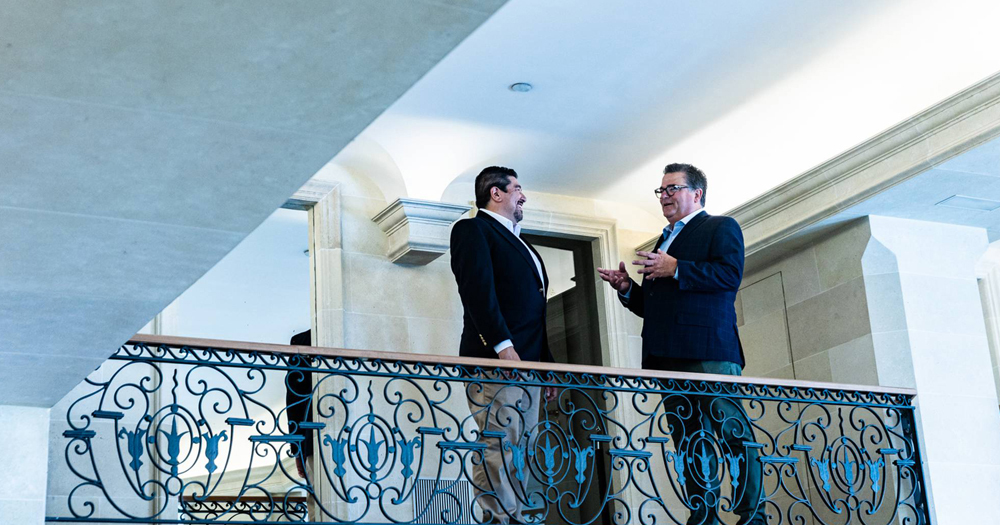It’s not uncommon to hear people refer to various service providers as being either transactional or consultative in their approach to providing services to clients. I have occasionally found hiring managers who aren’t always familiar with working with external recruiting firms and can therefore lack a clear understanding of how these two approaches apply to external recruitment resources like The QualiFind Group. Thus, I would like to attempt an explanation.
Which is better – transactional or consultative?
It is hard to assess which is better without knowing both the need and the details of the service being provided. Given the straightforward nature of the transactional approach, one could incorrectly infer that it’s perhaps less valuable. As a career talent acquisition consultant (aka recruiter, headhunter, search consultant, etc.) I can tell you that both transactional and consultative approaches can be correctly applied in the world of recruiting talent for client organizations.
To accurately determine the most appropriate approach, you must consider a number of things including the nature of the recruitment mandate, the level of experience needed, discretion or confidentiality concerns, customer expectations and preferences, industry norms, and your long-term goals. To better understand the differences between a transactional or consultative approach, I will outline some representative examples of each as follows:

CONSULTATIVE APPROACH
- Customer-Centric: Focuses on developing a deep and empathic understanding of the customer’s needs, challenges, and goals.
- Relationship Building: Emphasizes building and maintaining long-term relationships based on trust and mutual understanding.
- Customization: Tailors solutions to meet specific customer needs, often involving personalized recommendations and maintaining the flexibility to adapt to changing conditions.
- Value Addition: Aims to provide additional value beyond the contracted service by offering insights, expertise, and guidance.
- Complex Solutions: Most suitable for complex services or require in-depth analysis and consultation to ensure a successful outcome.
The following four applications are representative examples of being well-suited for a consultative service delivery:
1. Strategic Planning and Business Development: Consulting services that involve working closely with clients to develop long-term strategic plans, identify growth opportunities, and overcome challenges. This could include such work as market analysis, competitive intelligence, and strategic decision-making support.

2. Talent & Organizational Change Management: Consulting services such as professional recruitment, executive search, organizational development, continuous improvement or others that help businesses navigate complex organizational changes such as replacing key talent or executive leadership, mergers and acquisitions, restructuring, continuous improvement or cultural transformations. Successful execution often requires a deeper understanding of the unique dynamics and challenges within the client organization, a degree of confidentiality and discretion, and the ability to provide tailored solutions to facilitate a more precise change successfully.
3. Technology Advisory Services: Consulting services that assist businesses in leveraging technology to achieve their strategic objectives. This could include technology assessments, solution architecture design, vendor selection, and implementation planning tailored to the specific needs and goals of the client organization.
4. Sales and Marketing Strategy: Consulting services that help businesses optimize their sales and marketing efforts to drive revenue growth and market penetration. This could include customer segmentation, value proposition development, go-to-market strategy, and sales enablement support tailored to the client’s target market and industry.
In the above scenarios, clients stand to benefit from more than just a transactional service—they need a trusted advisor who can provide expert insights, strategic guidance, and customized solutions to address their unique challenges and opportunities. A consultative approach allows consultants to build deep relationships with client stakeholders, understand their businesses in depth, and co-create value through collaborative problem-solving and strategic planning.

TRANSACTIONAL APPROACH
- Efficiency: Emphasizes quick, standardized transactions with minimal customization and customer interaction.
- Volume-based: Focuses on volume-based transactions, often with thin margins, requiring the service provider to maximize the number of transactions to increase revenue and profitability.
- Standardization: Offers pre-defined services with little room for customization or personalization.
- Cost-effective: Suited for services where efficiency and cost-effectiveness are prioritized over individualized attention.
- Low Complexity: Works well for straightforward services where customers have clear needs and require minimal assistance.
The following four applications are representative examples of being most suitable for a transactional approach to service delivery
1. Routine Procurement Services: Consulting services that help businesses procure standard goods, commodities or services such as raw materials or office supplies in bulk. These services typically involve negotiating contracts, identifying suppliers, and managing the purchasing and shipping process efficiently.
2. Compliance and Regulatory Consulting: Consulting services that assist businesses in complying with industry regulations, standards, or legal requirements. This could include conducting audits, providing training, or implementing standardized processes to ensure regulatory compliance.

3. Talent Acquisition: Consulting services such as staffing agencies or contingent recruitment firms that often work on a volume basis in tandem with internal recruitment efforts. These types of recruiting firms typically work on positions where the talent pool is more active and available, requires less assessment, and the priority is placed on time to fill, and the providers are working with a high volume of recruiting assignments that they can fill quickly with minimal time invested in assessing and engaging the candidates.
4. Market Research and Data Analysis: Consulting services that provide standardized market research reports, data analysis, or industry benchmarks to help businesses make informed decisions. These services often involve collecting and analyzing data from various sources to generate insights and recommendations.
In these types of situations, clients may have relatively straightforward needs that can be addressed using standardized approaches which would allow them to prioritize factors such as cost, speed, and reliability. A transactional approach allows consulting firms to deliver these services efficiently, often through streamlined processes, standardized deliverables, and predefined service packages.

The QualiFind Group and our sister practice – The ExeQfind Group are primarily focused on serving client organizations via the consultative approach. We recognize that there are numerous scenarios where a transactional approach is perfectly viable to acquire needed talent and we do build in elements of the transactional approach within our project recruitment service delivery.
So how can you apply both models? Our project recruitment service is typically used to support clients engaged in launching a greenfield or perhaps an operational expansion. In these cases, our clients engage us to manage multiple recruitment assignments against timelines and milestones, this means the emphasis will be on speed and efficiency (time to fill) and given the size of the project – cost containment. Startups typically involve a wide range of specialist to functional management roles and given our experience and extensive database, we are able to quickly execute the sourcing, engagement and assessment process in a cost-effective manner making this part of a project more transactional than consultative.
That’s not to say that the project recruitment model is purely transactional. The more senior roles often involve a higher level of discretion or more complex assessment. This requires our search consultants to gain a deeper understanding of the organization and how the role will impact and add value.
Representative examples of organizations undertaking greenfield projects where we have successfully completed via a blending of transactional and consultative service delivery includes Honeywell, Greatbatch Medical, Toyota, Callaway Golf, Sonova and Demant. Still confused as to which approach would work best for your needs? A simple consultative and collaborative phone or video call will answer your questions and give you the clarity you need to make an informed decision. Helping our clients make informed decisions is one of the most rewarding things we do!
– Carlos Acosta

Carlos Acosta is the Practice Leader of The QualiFind Group based in San Diego, California. The QualiFind Group is a Forbes-ranked professional & technical recruitment firm with an established global network of recruiting, consulting and research professionals. The QualiFind Group has supported the talent acquisition needs of a broad range of client organizations undergoing nearshoring initiatives since 1999.
Would you like to learn more about whether flexible work accommodations can help your recruitment efforts? Contact Carlos Acosta at 619-240-2638 or Warren Carter at 619-921-1795

